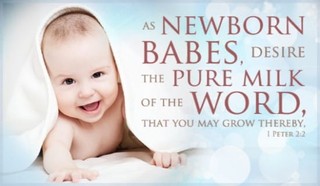
Change Translation
- Recent Translations
- All Translations
Images for Kefa I 2:22


Share
Kefa I 2:22 Meaning and Commentary
Who did no sin
He was in the likeness of sinful flesh; he looked like a sinful man, being born of a sinful woman, and keeping company with sinful men, being himself a man of sorrows, greatly afflicted, and at last put to death. He was traduced as a sinner by his enemies, and had all the sins of his people on him, which he bore, and made satisfaction for, and were the reason of his sufferings; but he had no sin in his nature, nor did he commit any in his life:
neither was guile found in his mouth;
though it was diligently sought for, by the Scribes and Pharisees; there was no deceit in his lips, no falsehood in his doctrine, any more than there was immorality in his conversation; he was an Israelite indeed on all accounts, and in the fullest sense of that phrase; reference is had to ( Isaiah 53:9 ) and this is observed, partly to show that Christ suffered not for himself, or for any sins of his own, but for the sins of others, for which he was very fit, since he had none of his own; and partly as an argument for patience in suffering; for since Christ suffered, who had no sin, nor did any, nor could any be found in him, charged upon him, and proved against him; and which sufferings of his he bore with patience; then how much must it become sinful men to bear their sufferings patiently, though they may not be criminal with respect to the things for which they suffer, but yet are so in other things, whereas Christ was not criminal, nor blameworthy in anything?
Kefa I 2:22 In-Context
Study Tools
PLUSUnlock Notes
This feature is for PLUS subscribers only. Join PLUS today to access these tools and more.
JOIN PLUSUnlock Highlights
This feature is for PLUS subscribers only. Join PLUS today to access these tools and more.
JOIN PLUSUnlock Bookmarks
This feature is for PLUS subscribers only. Join PLUS today to access these tools and more.
JOIN PLUSTrack Your Reading
Create a free account to start a reading plan, or join PLUS to unlock our full suite of premium study tools.